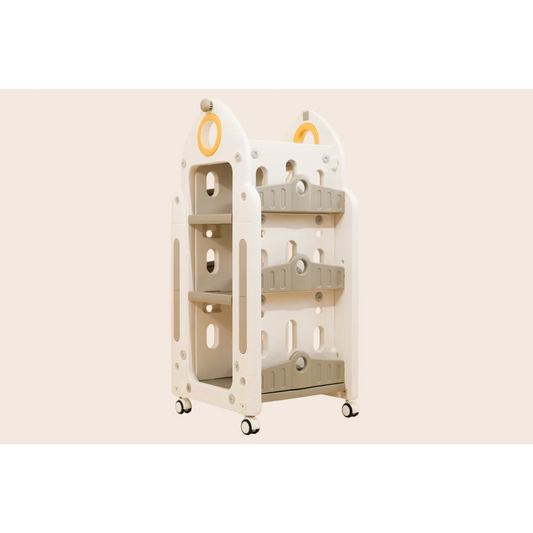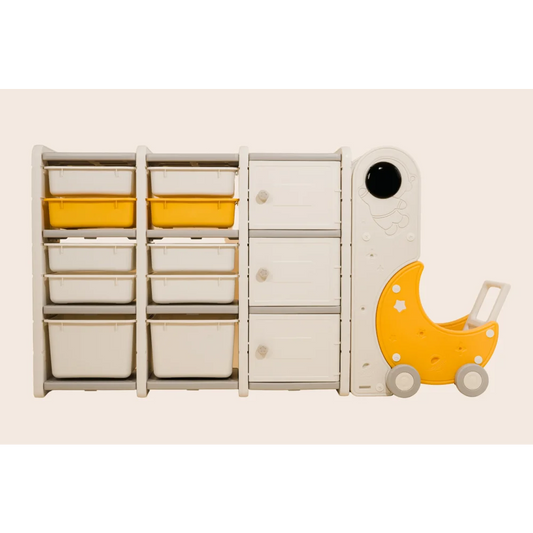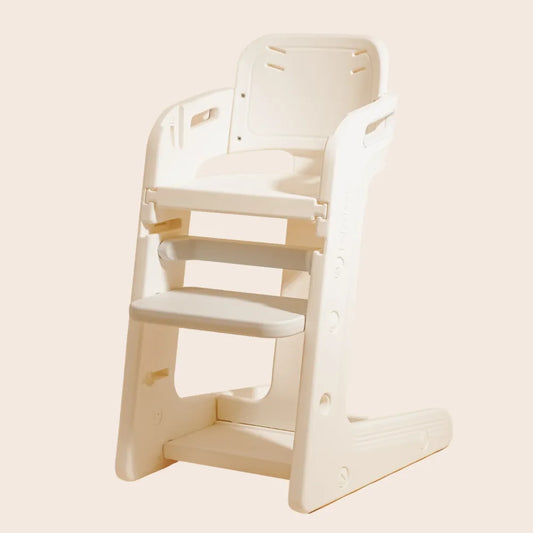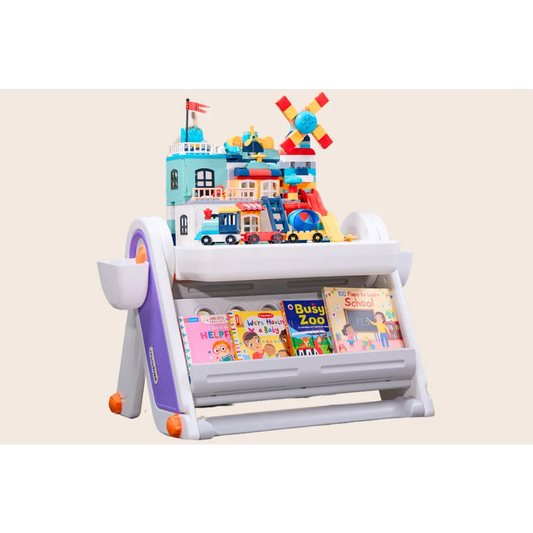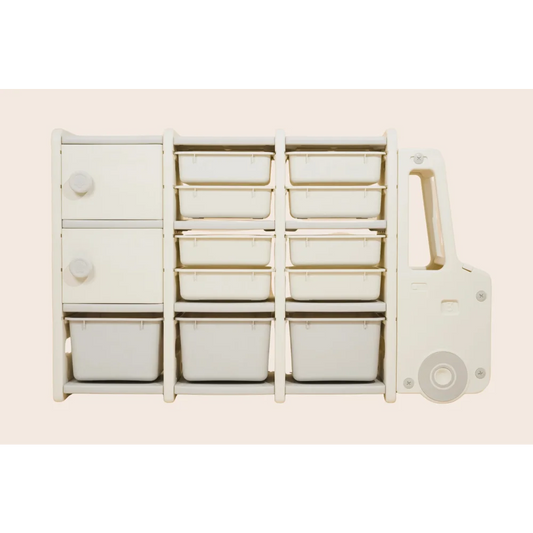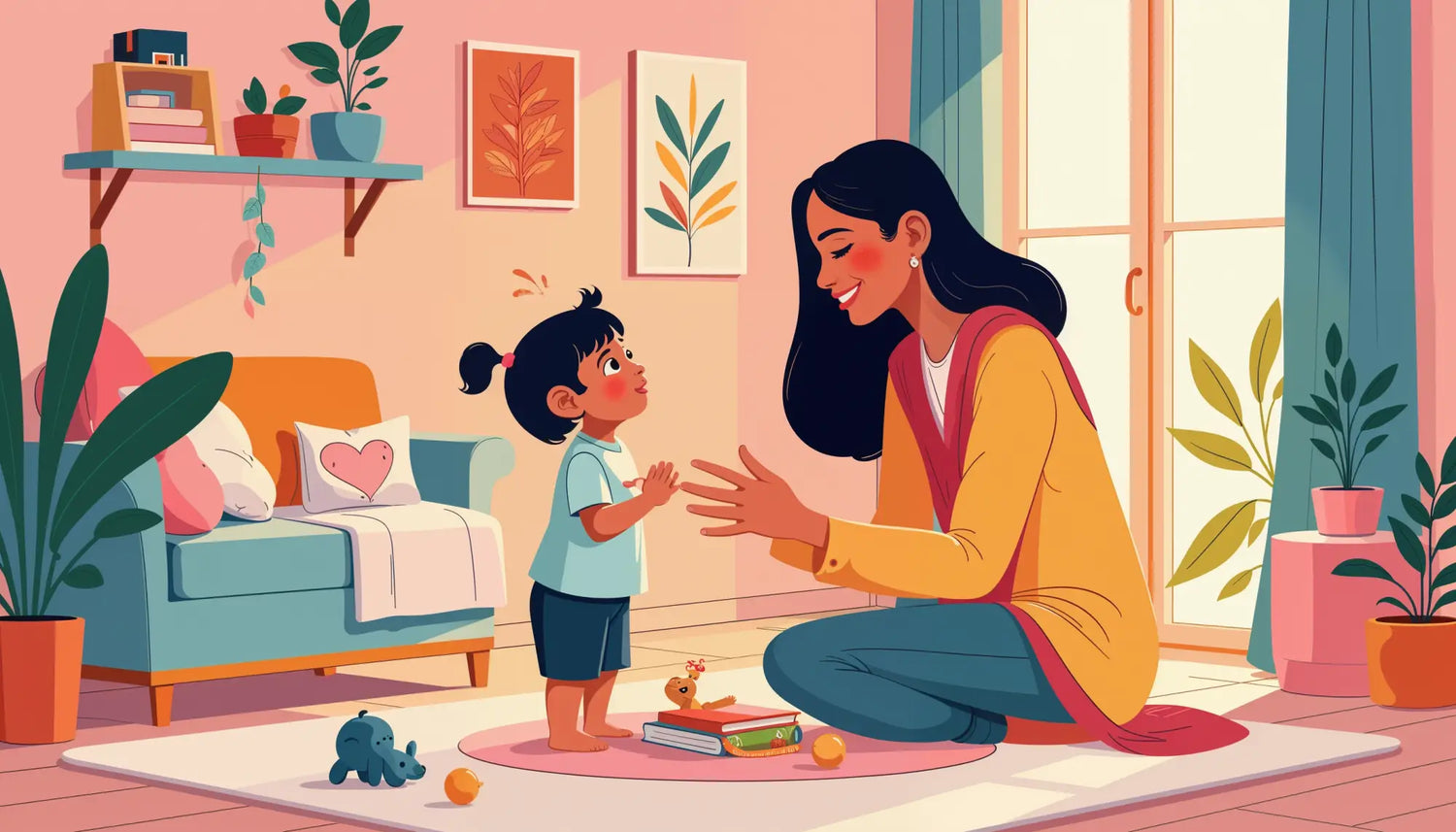
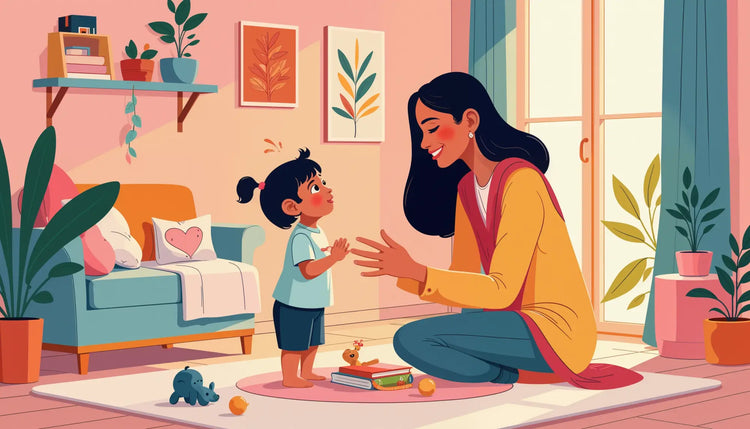
When should I start disciplining my toddler?
When should I start disciplining my toddler?
- By Sanaa Syed
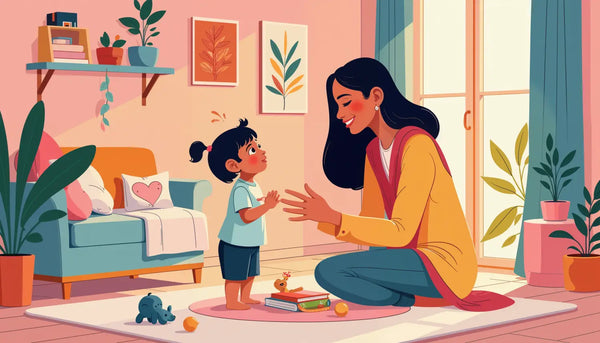
Parenting can be one of life’s most rewarding experiences, yet it often comes with its challenges—especially during the toddler years. One question that often emerges for new parents is: When should I start disciplining my toddler? The simple answer is as early as 12 months old.
As parents, one often wonders - “Is it okay to discipline my child by hitting?”, “Is using positive reinforcement better?” or “What is gentle parenting?” To answer the same, let us dive in!
Understanding Discipline and Toddler Development
Many associate discipline with punishment, but that’s a misconception. Discipline means to teach or train, and its primary goal is to guide toddlers in learning self-control, boundaries, and acceptable behavior.
During the toddler stage (typically between the ages of 1 and 4), children are undergoing significant physical, emotional, and cognitive growth. This can result in behaviors like tantrums, testing limits, and emotional outbursts, all of which are completely normal. Toddlers are still learning to regulate their emotions.
Starting Early and Setting Expectations
Contrary to popular belief, discipline begins as early as a toddler’s first year of life, through consistent routines, boundaries, and modeling of desired behavior. Starting early helps toddlers understand what is expected of them, even when they don’t yet have the words to express themselves.
By the time your child is 12 to 18 months old, they are beginning to understand cause and effect and can respond to simple instructions. This is the ideal time to start setting gentle yet clear expectations for behavior. For example, teaching them that biting is not acceptable by using simple language, “No biting, it hurts,” is an early form of discipline.
Be firm and start teaching your toddler about certain unacceptable behaviour from a young age.
Gentle Parenting and Positive Reinforcement
In today’s day and age, the term ‘Gentle Parenting’ is not unheard of but is still misunderstood. To enforce discipline, it is important to be empathetic and respect the child’s unique needs - which is achievable through the route of gentle parenting to foster a healthy parent-child relationship.
Hitting children is not a recommended step under gentle parenting as it is crucial to respect the child's autonomy and to deal with the difficult task of parenting with love and empathy. Toddlers associate positive actions with the warm feelings that come from your approval and attention, thus positive actions should be preferred over hitting.
Positive reinforcement is particularly powerful for toddlers. At this age, children thrive on praise, attention, and affection. When you consistently reinforce good behavior with positive feedback—such as verbal praise, hugs, or even small rewards like stickers—you encourage your toddler to repeat those behaviors.
Age-Appropriate Discipline: Tailoring Your Approach
It’s crucial to tailor your discipline approach to your toddler’s developmental stage. Discipline strategies that are effective for a 1-year-old will differ from those that work for a 3-year-old. Below, we break down some age-appropriate strategies that align with toddler development and focus on gentle parenting principles.
1-2 Years Old: Focus on Communication and Redirection
At this stage, your toddler is just beginning to explore their environment and assert their independence. They are also learning the basics of language and communication, though they may not yet have the verbal skills to express themselves fully.
- Redirect behavior: Rather than focusing on what your child is doing wrong, try to redirect their attention. For example, if your toddler is throwing blocks, gently take the blocks away and offer them a soft toy instead. Instead of giving long explanations, say, “Use your hands gently.”
- Use simple language: Toddlers are just starting to understand language, so it’s important to keep your instructions short and clear. 2. Set clear boundaries: Now is the time to establish basic household rules, such as not hitting, biting, or throwing food.
- Positive reinforcement: Catch your toddler being good. If they share a toy or follow a direction, offer praise immediately.
2-3 Years Old: Teach Problem-Solving and Self-Control
The “terrible twos” are known for a reason—toddlers at this stage are becoming more independent and may test limits regularly. This is also a time when tantrums and emotional outbursts can peak, as toddlers struggle with frustration and the growing desire to do things on their own.
- Teach problem-solving: When your toddler is upset, try to help them identify their feelings and offer solutions. For example, if they’re frustrated because they can’t reach a toy, say, “You’re upset because you can’t get the toy. Let’s ask for help.” This teaches them how to express emotions and find solutions.
- Introduce choices: Offering limited choices gives toddlers a sense of control while still allowing you to set boundaries. For example, ask, “Would you like to wear the red shirt or the blue shirt today?” This prevents power struggles.
- Use time-ins, not time-outs: Instead of sending your child to sit alone when they misbehave, try a “time-in,” where you sit together quietly until they calm down. This reinforces the idea that you are there to support them, even when they’re having a tough time.
- Model empathy: Empathy is a powerful tool at this stage. When your toddler sees you comforting others or talking about feelings, they learn how to be empathetic themselves.
3-4 Years Old: Understanding Consequences and Empathy
As your toddler approaches preschool age, they begin to understand more about consequences, both natural (the results of their actions) and logical (the consequences set by an adult). They’re also developing more empathy and can start to see how their actions affect others.
- Reasonable consequences: If your child draws on the wall, a logical consequence would be helping to clean it up. The consequence should be related to the behavior and help the child learn responsibility.
- Encourage empathy: Help your child recognize the impact of their actions on others. If they grab a toy from a friend, gently explain, “When you take the toy, it makes your friend sad. Let’s ask if we can take turns.” This helps them understand natural consequences.
- Set realistic expectations: It’s essential to remember that toddlers are still learning. Mistakes are normal. Praise progress and effort rather than focusing solely on outcomes.
Expert Tips for Effective Discipline
- Be regular: Children need consistency to understand rules and expectations. If a behavior is unacceptable today, it should be unacceptable tomorrow as well.
- Set Clear Boundaries: Be firm and start teaching your toddler about certain unacceptable behaviour. Gently explain why such behaviour is not okay and help them understand the don't do's.
- Stay calm: While it’s easy to get frustrated, especially when faced with a tantrum, staying calm is crucial. Toddlers often look to their parents for cues on how to react to situations. If you respond calmly, they are more likely to do the same.
- Say no to power struggles: If you find yourself in a battle of wills with your toddler, it’s often best to offer a compromise or a choice. Power struggles can escalate quickly and lead to frustration for both parent and child.
- Praise good behavior: Catching your child when they are behaving well and giving them positive attention reinforces those behaviors. Praise is a powerful motivator for young children.
- Provide a safe and structured environment: Toddlers need routines and boundaries to feel secure. Having a structured environment with clear expectations can help reduce behavioral issues.
As a parent, one should understand that discipline is a journey, not a destination.
Discipline during the toddler years is about teaching and guiding your child through their emotional and cognitive development. Starting early with age-appropriate discipline that focuses on gentle parenting and positive reinforcement sets the foundation for a positive, respectful relationship with your child as they grow.

